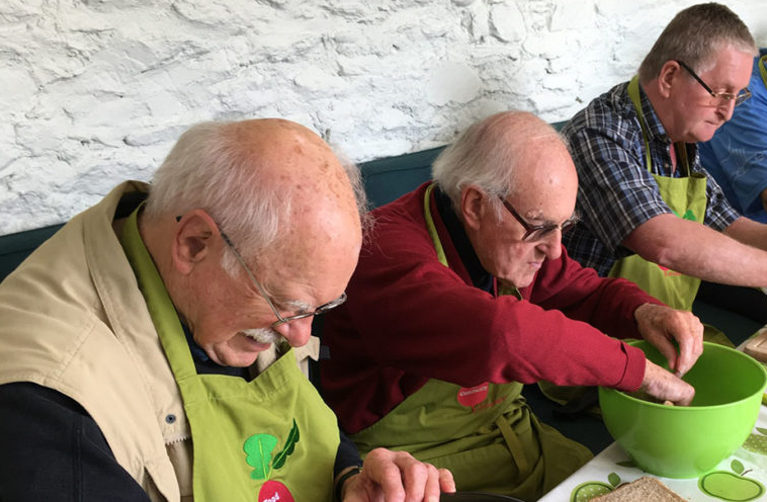Seven years ago, two sustainable horticulture students took a field trip to an organic farm in the U.K. and were shocked to see cauliflowers left in the field due to their irregular shape or size. In reaction, they founded Food in Community, which aims to tackle food waste, food poverty, and social isolation in Totnes, England, by connecting producers with food banks and other distributors.
With support from grants, food suppliers and a team of enthusiastic volunteers, the organization makes deliveries weekly to those who struggle to access food.

Co-director Chantelle Norton says “one of the needs we’ve identified is that food banks’ clients can’t really use a lot of the food that gets donated (for instance, a homeless person might not have access to a stove to heat up a can of baked beans or cook some pasta), so we facilitate swaps between organizations and all the parties involved get better served.”
Food in Community plans to replicate, rather than expand, and is piloting another project in Newton Abbot, a neighboring town. That means they’re engaging with the local community and local businesses to address the same issues around food waste and food poverty, whilst establishing a network in that specific context.
In alliance with nonprofits and food banks, Food in Community also supports schools to provide healthy meals for students. In one school in Totnes, for instance, school lunch uptake has increased by 35 percent, since the parents and the children were pleased with the quality of the meals provided.
Food in Community co-founder and co-director David Markson said there was a “general lack of skill” among clients in preparing and cooking fresh ingredients. The organization runs cooking classes for people with mental health issues and aged men living alone and runs a ‘pay what you feel’ cafe.

The cafe aims to support community cohesion and showcase the organization’s work. It recruits volunteers, recipients, and raises funds. Regular events attract a diverse group of customers, connecting them to each other over nutritious food, whilst providing some entertainment, which creates a fun atmosphere.
Part of the organization’s goal is to use food for social change because it can bring people together, strengthen the community, and divert waste. The results are impressive: more than 50 tonnes of edible and mainly organic produce per year has been saved from becoming waste, representing more than 175,000 meals and 12,000 food boxes.
This scheme is made possible by more than 18,000 hours of volunteer support. The project pays for itself, but it doesn’t generate enough income to pay coordinators. The organization is planning new income streams such as residential courses, processing food for sale, and public lectures. Volunteers are vital, so the project has very open, inclusive and flexible work policies. They offer all volunteers free food, and regulars are given training in first-aid and food hygiene.

The founders said it was crucial to develop a network of suppliers, recipients, and committed volunteers. Farmers and suppliers wanted a long-term solution around waste, not short-term donations, they said. Markson sees his role as an ambassador, training and empowering people and communities, including writing a manual for those who want to set up a similar scheme. “But in the end, getting quality food on the table is what’s all about,” he said.
This article is cross posted with permission from Shareable.net





